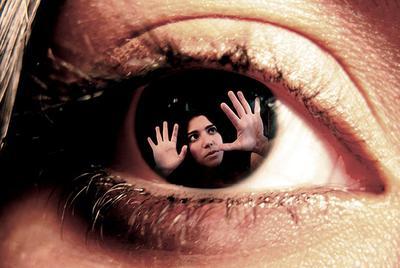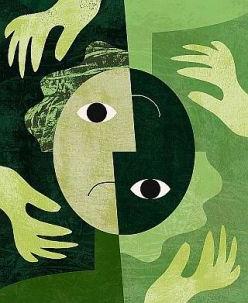Sometimes the human brain behaves in a strange way: it suddenly begins to deny its own existence.

Doctors call this symptom a radical denial and make a diagnosis of Kotar’s syndrome. That was the name of the psychiatrist who first described the disease. Those who are sick suddenly “understand” that they do not have some organs, that the insides of the body have rotted, and the man himself has become huge, “like heaven”. "Pursuing" Cotard’s syndrome, or rather, studying hundreds of patients in different clinics of the world, experts found that the disease, depending on its severity, can have different causes. So, a patient was found in whom Kotar syndrome was the result of typhoid fever. Japanese psychiatrists consider the disorder in the beta-endorphin background to be the cause of the disease. Although very often it develops against the background of psychotic depression. Sometimes it happens that an exacerbation occurs for no apparent reason. It’s just that over the course of several weeks people feel irritability, anxiety builds up, and then what doctors call “Kotar syndrome” begins.

Scientists from Cambridge after studies of 100 patients found that this ailment is an extreme form of self-denial. 86% of patients were nihilistic (negative) about parts of their body, almost half of them claimed that they could not die, and therefore they were immortal, and about 70% were sure that they did not exist at all.
Kotar's syndrome. Symptoms
It is known that the disease manifests itself mainly in the middle of life, and in women much more often than in men. There is no explanation for this, there are just statistics. No connection was established either with the health of patients, nor with their heredity or the environment of growing up. However, the symptoms of the disease, and very diverse, have been established. Here they are:

- At the beginning of the disease, anxiety and irritability increase. Since these symptoms accompany various ailments, only very experienced psychiatrists can establish a diagnosis at this stage.
- Patients begin to deny the existence of certain internal organs. It is known that one of the patients claimed that "instead of his heart, he had something else." Some are sure that any organs in them have rotted or disappeared somewhere.
- Gradually, if Cotard’s syndrome is not treated, patients stop using the pronoun “I”, so the degree of self-denial increases. “This”, “it”, “Madame Zero” - patients find any impersonal form of designation of their personality and organism. Sometimes patients have the feeling that they have already died.
- Gradually sick become convinced of their vastness and inability to die, which further enhances the depressive state. They crave death, but are confident in their immortality, so they can sometimes commit suicide attempts.
- At different stages of the disease, patients may experience auditory, visual, or olfactory hallucinations, confirming their nihilistic disposition.
Doctors usually use a combination of psychotropic drugs to treat this mental illness. The main goal of treatment is to stop the underlying problem (for example, depressive psychosis, schizophrenia, etc.).